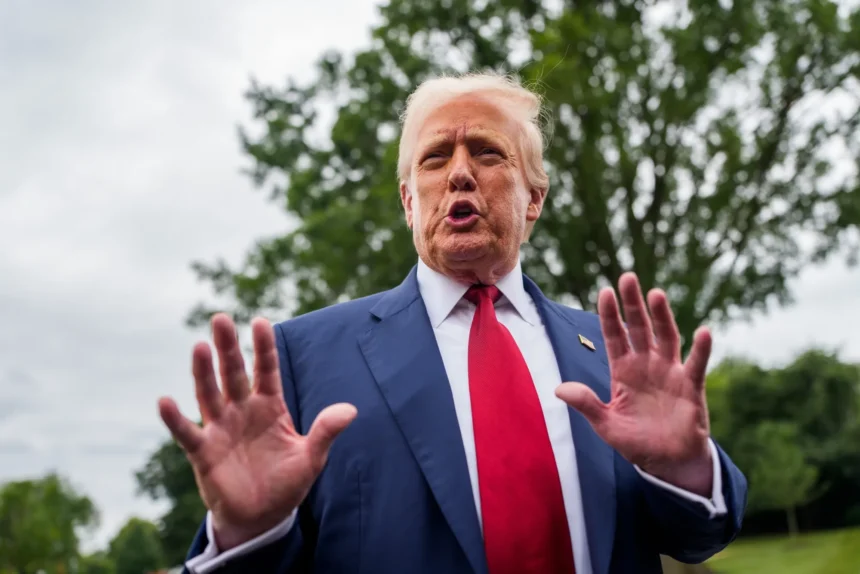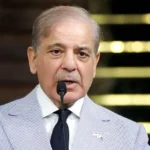US President Donald Trump signaled on Tuesday that new tariffs on imported pharmaceuticals and semiconductors could be announced as early as next week, as part of his ongoing push to reshape global trade.
Trump’s latest remarks, made during an interview with CNBC, come just days before a separate round of tariff hikes is set to take effect on dozens of countries later this week.
The broad tariff plans have triggered a wave of diplomatic activity, with governments working to mitigate the potential impact — including Swiss officials, who traveled to Washington on Tuesday in a last-minute attempt to avoid punitive measures.
Despite these efforts, Trump appears poised to expand his trade confrontations further.
Speaking to CNBC, he revealed that upcoming tariffs on imported pharmaceuticals could be as high as 250 percent, and confirmed that additional duties on foreign-made semiconductors are also in the pipeline.
“We’ll start with a small tariff on pharmaceuticals, but within a year to a year and a half—at most—it’ll rise to 150 percent,” Trump said.
“Eventually, it’ll go up to 250 percent because we want pharmaceuticals to be made in our own country.”
Trump also noted that Washington would be announcing new tariffs “within the next week or so.”
He added: “We’ll also be announcing tariffs on semiconductors and chips.”
Concerns for the US Economy
Trump has been targeting various foreign products with different tariff rates, following an April decision to impose a 10 percent levy on almost all U.S. trading partners—leaving out certain sectors, which are now being singled out.
Swiss officials are currently working to avoid a U.S. tariff increase to 39 percent, set to take effect Thursday. While pharma is not currently included in that specific hike, Trump’s latest plans for a sharp pharmaceutical tariff are expected to become a central issue in ongoing talks.
Pharmaceuticals made up 60 percent of Switzerland’s exports to the U.S. last year.
Alongside pharmaceutical and semiconductor imports, Trump has already enforced steep duties—50 percent on steel and aluminum imports, along with smaller tariffs on cars and auto parts.
In the same CNBC interview, Trump said he expects to “very substantially” raise tariffs on Indian imports within the next 24 hours, citing India’s continued purchase of Russian oil.
He argued that this trade helps fund Moscow’s military offensive in Ukraine.
Trump’s warning to India came just after he signaled the possibility of new sanctions against Moscow if Russia does not make meaningful progress toward a peace deal with Kyiv by Friday—more than three years since the invasion began.
Meanwhile, Moscow is preparing for talks this week with Trump’s special envoy, Steve Witkoff, and the Kremlin has condemned the threat of increased tariffs on Indian goods.
Economic Impact and Uncertainty
Recent weak employment figures have added to concerns about the U.S. economy, as businesses take a cautious stance on hiring and investment amid Trump’s unpredictable and aggressive tariff policy.
The former president sees tariffs as a show of economic strength—designed to bolster American exporters and promote domestic manufacturing by limiting foreign competition.
However, critics warn the strategy could fuel inflation and trigger broader economic disruptions in the world’s largest economy. (Agencies)









